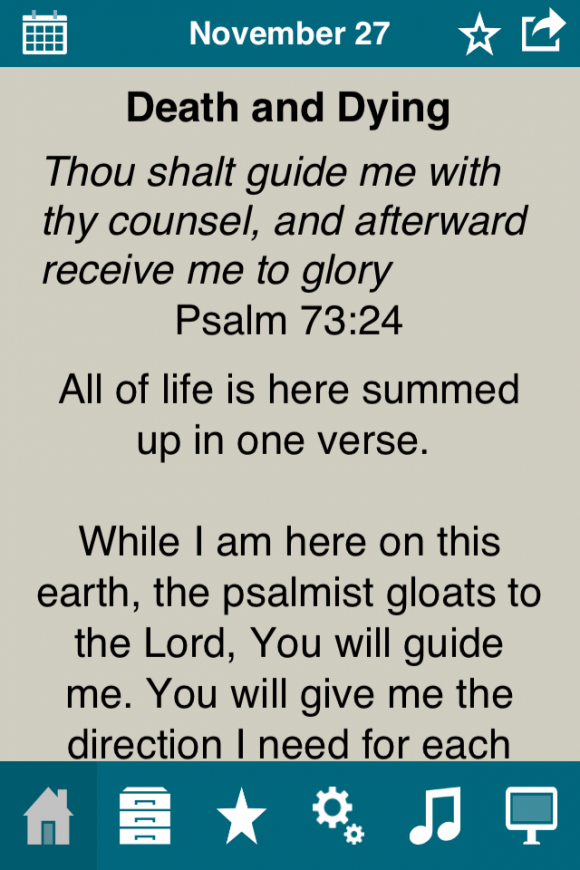
We are to give because it is the natural outflow of a life that is already filled with the blessings of God, not only physically but also spiritually and emotionally as well. Remember the words of Jesus, Freely you have received, freely give (Matthew 10:8).
#In touch ministries daily devotion full#
A life that is full of the blessing and grace of God ought to shower others with that blessing.

Whether a tree falls to the south or to the north, in the place where it falls, there will it lie.įirst, we are to give generously because it is the natural outflow of a full life, like clouds that are filled with rain and empty themselves again and again upon the earth. There follow reasons for this kind of generosity in verse 3: If clouds are full of water, they pour rain upon the earth. You do not know what evil may be averted by your gift.

This Hebrew idiom, Give portions to seven, yes to eight, was a way of saying, Give to as many as you can, and then some. That is not limiting us to how many we should have on our help list. I could relate several stories of people who helped strangers then, at some later time when they found themselves in serious trouble, that person or that deed reappeared in such a way as to help them in their time of need.Īlso, give as widely as possible: Give portions to seven, yes to eight, for you do not know what disaster may come upon the land (Ecclesiastes 11:2). Cast your bread upon the waters, for in the wisdom and purpose of God it may very well return to you some day when you are in need of help. When you see people in need, though you do not know how they are going to use your money-it may not be apparent that they will even use it wisely-nevertheless, be generous. What is meant is, be willing to take a chance where a real need is evident.

This is not encouraging us to be spendthrifts, to thoughtlessly and carelessly give away our money, spending it like a drunken sailor. But here we are enjoined to do that very thing. No one would take good bread and throw it in the river. This phrase, Cast your bread upon the waters, was a proverb in Israel for what looked like wasteful expenditure. Give freely, wisely, and generously to the needs of those about. The idea expressed here is one of openhanded generosity.


 0 kommentar(er)
0 kommentar(er)
